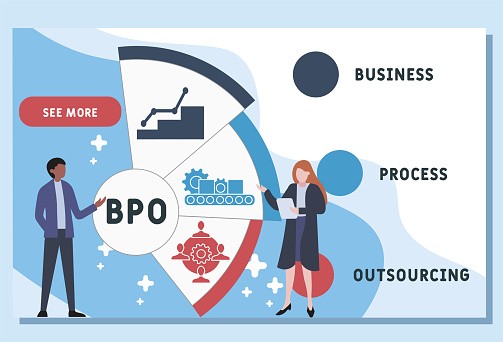BPO-Business Process Outsourcing

In today’s fast-paced world, businesses constantly seek ways to streamline operations, reduce costs, and stay competitive. Business Process Outsourcing (BPO) has emerged as a powerful solution to achieve these goals, enabling companies to focus on their core competencies while outsourcing specific tasks to experts.
What is BPO?
BPO refers to outsourcing non-core business processes to third-party service providers. These processes can range from customer service and IT support to payroll management and data processing. Companies across industries rely on BPO to enhance efficiency, reduce operational costs, and improve service quality.
Key Benefits of BPO
- Cost Savings
Outsourcing reduces the need for in-house infrastructure and labor costs. BPO providers, often located in cost-effective regions, offer quality services at lower prices. - Access to Expertise
BPO partners bring specialized knowledge and skills to handle tasks efficiently, ensuring higher accuracy and better outcomes. - Focus on Core Business
By delegating routine tasks, companies can concentrate on their primary objectives, such as innovation, strategy, and growth. - Scalability and Flexibility
BPO offers the flexibility to scale operations up or down based on business needs, ensuring agility in dynamic markets. - Enhanced Customer Experience
With expert teams managing customer interactions, businesses can deliver superior service and build lasting relationships.
Types of BPO Services
- Front-Office Services
- Customer support
- Technical support
- Marketing and sales
- Back-Office Services
- Data entry
- Payroll processing
- Human resources management
- IT-Enabled Services (ITES)
- Software development
- Cloud management
- Cybersecurity services
BPO in Action: Real-World Applications
- E-commerce: Managing customer queries and order processing.
- Healthcare: Streamlining medical billing and transcription services.
- Finance: Handling accounting, auditing, and tax preparation.
Challenges in BPO
While BPO offers numerous benefits, it’s not without challenges.
- Data Security: Ensuring sensitive information remains protected.
- Communication Barriers: Differences in language or time zones can impact service quality.
- Dependency on Providers: Over-reliance on third-party providers may pose risks.
Businesses must choose reliable BPO partners and establish clear contracts to mitigate these issues.
The Future of BPO
The BPO industry is evolving with technological advancements. Automation, artificial intelligence (AI), and machine learning (ML) are reshaping how processes are managed. The focus is shifting from routine tasks to high-value services, such as data analytics and digital transformation.
Conclusion
Business Process Outsourcing is a transformative strategy for companies aiming to optimize operations and stay ahead in a competitive landscape. By leveraging the expertise and efficiency of BPO providers, businesses can achieve growth, innovation, and success.
Whether you’re a startup or a global enterprise, embracing BPO can unlock new opportunities and drive long-term value.


